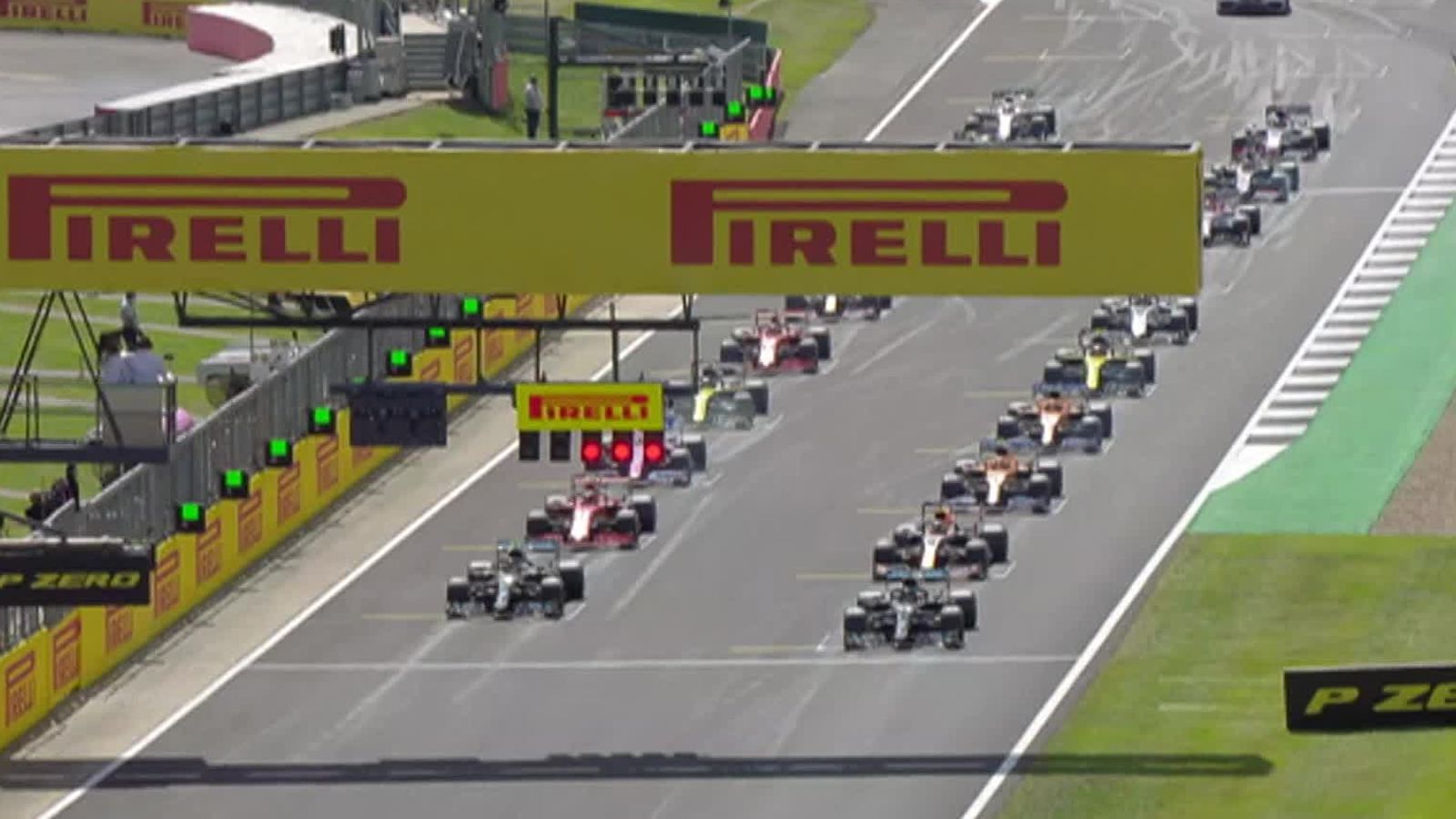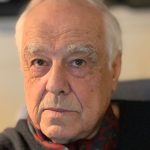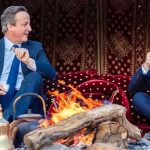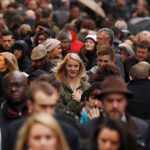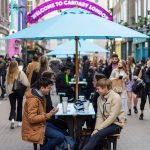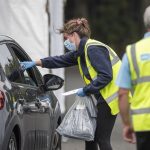Vaccine passports could make it possible for sports fans to watch the events they love this summer, the boss of Silverstone race track has said.
Stuart Pringle, the managing director of the track, which hosts the British Grand Prix, has acknowledged “there’s a long way to go” towards easing restrictions, but said the track’s “technical people are already having conversations with testing organisations”.
The comments come as Prime Minister Boris Johnson outlined the government’s roadmap for easing coronavirus lockdown restrictions in England over the forthcoming months. The leaders of Scotland, Wales and Northern Ireland have also set out plans.
Live COVID updates from the UK and around the world
From 17 May, larger outdoor seated venues such as football stadiums will be allowed up to 10,000 people or be a quarter full, whichever is lower.
From 21 June, ministers hope to be able to lift such limits.
This year’s British GP is scheduled for 18 July and Mr Pringle said the venue – which in 2019 attracted a race-day attendance of 141,000 – had duly modelled different scenarios for fan attendance this year in “every way” possible.
Asked if proposed vaccine passports could help big sports events run at capacity, he told Sky Sports News: “It’s something that fans would absolutely consider if it gives them a chance to go and see their sport, whatever that is.
“There has been talk between me and other sports and the government about whether our electronic ticket systems could be linked to the data that is provided by a passport.
Review into whether Britons will need 'vaccine passports' to enter pubs or theatres
“It’s not straightforward, but it’s probably possible. So that’s something I would vote for.”
The Northamptonshire venue staged two races last summer but both ran behind closed doors.
Subscribe to the Daily podcast on Apple Podcasts, Google Podcasts, Spotify, Spreaker
Silverstone allowed fans who had already bought tickets for the original 2020 date to roll them forward for 2021, an option Pringle says that the “majority” of people took up.
He said he had been “hugely heartened” by subsequent take-up since the government’s announcement but stressed: “It isn’t certain, there is risk.”
